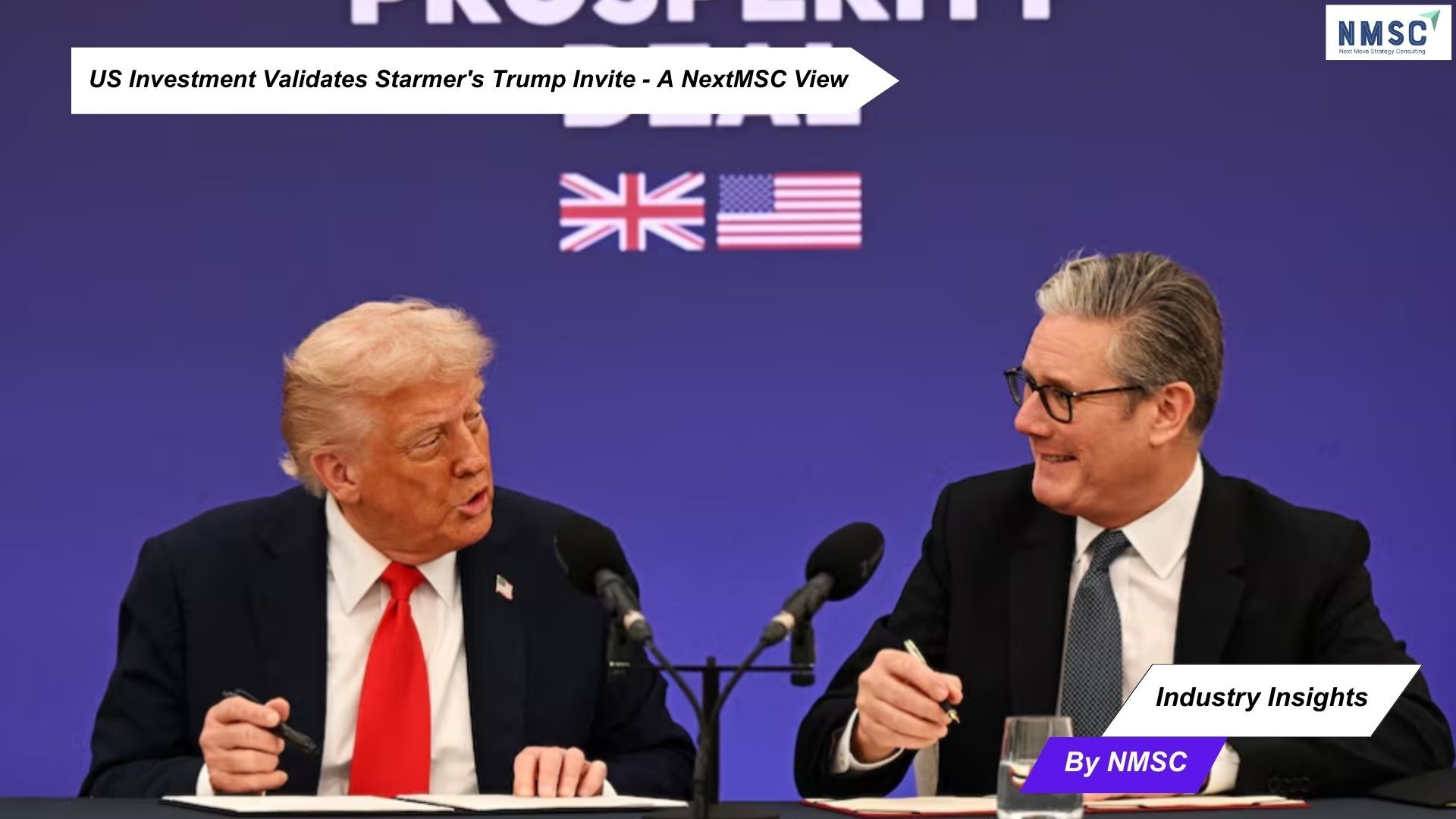US Investment Validates Starmer's Trump Invite - A NextMSC View
Published: 2025-09-19

Industry Insights from Next Move Strategy Consulting
As the United Kingdom continues to navigate a contentious political moment, recent moves by U.S. investors have been read by some as an implicit endorsement of Prime Minister Sir Keir Starmer’s decision to invite former U.S. President Donald Trump. The development has sharpened debate over the political judgment behind the invitation and raised questions about the broader commercial and diplomatic signals sent to international capital.
A Political Calculus with Economic Resonance
Sir Keir Starmer’s invitation to a high-profile, polarising international figure has been described by critics as a risky political gambit. The emergence of visible U.S. investment activity in the wake of that decision has been interpreted by observers as lending a degree of validation to the Prime Minister’s outreach. That dynamic juxtaposes political optics with the practicalities of attracting and retaining foreign capital.
Key Takeaways:
-
U.S. investment activity has been portrayed as providing political cover for Starmer’s invitation.
-
Critics view the outreach as politically fraught; backers argue it may bolster international engagement.
-
The intersection of political signalling and investor confidence is central to ongoing debate.
Political-Commercial Linkages and Market Sentiment
The episode underscores how political gestures can immediately feed into conversations about investor confidence and the U.K.’s attractiveness to overseas capital. While the invitation itself is framed as a diplomatic and political decision, subsequent investor reactions are being read through a commercial lens: commentators are weighing whether capital flows reflect confidence in the government’s direction or simply opportunistic market positioning.
Industry Response and Strategic Outlook
Reactions across political and commercial circles show a mix of concern and pragmatic recalibration. For some market participants, visible investment from the U.S. provides reassurance that the U.K. remains open for business; for others, the optics of the engagement may complicate domestic political calculations. Analysts will be watching whether investor behaviour persists and how both domestic and international stakeholders interpret these moves over the coming weeks.
According to Next Move Strategy Consulting - Impact on Data Center and AI Trade
According to Next Move Strategy Consulting, the observed investor activity tied to this political development could have measurable implications for trade and investment in technology-focused sectors, notably data centres and artificial intelligence. Next Move highlights that shifts in foreign capital sentiment can translate into changes in demand for digital infrastructure and cross-border technology services. In practical terms, the consultancy suggests that sustained investor confidence may:
-
Encourage additional capital allocation toward digital infrastructure projects, including data centre construction and expansion.
-
Support cross-border partnerships and procurement of AI-related hardware and software, affecting trade flows in technology equipment and services.
-
Accelerate commercial decisions by global firms weighing the U.K. as a hub for AI deployment and data processing, with potential implications for supply chains and service contracts.
NMSC stresses these outcomes depend on whether investor interest proves durable rather than transitory; sustained capital inflows are more likely to spur tangible trade and investment activity in the data centre and AI ecosystems.
Redefining the Political and Commercial Narrative
The sequence of events - a politically charged invitation followed by notable U.S. investment attention - highlights the porous boundary between political strategy and market behaviour. Whether interpreted as validation or coincidence, the interaction between government decisions and investor response remains a key story for policymakers and business leaders alike. Moving forward, observers will be assessing not just immediate market reactions but the degree to which those reactions translate into longer-term economic engagement.
Source: www.reuters.com
Prepared by: Next Move Strategy Consulting
About the Author
 Joydeep Dey is an SEO Executive, Content Writer, and AI expert with 2½ years of experience.
He specializes in SEO strategy, impactful content, and AI-driven solutions. Passionate about simplifying complex ideas, he helps boost visibility and engagement
Joydeep Dey is an SEO Executive, Content Writer, and AI expert with 2½ years of experience.
He specializes in SEO strategy, impactful content, and AI-driven solutions. Passionate about simplifying complex ideas, he helps boost visibility and engagement
About the Reviewer
 Sanyukta Deb is a skilled Content Writer and Digital Marketing Team Leader, specializing in online visibility strategies and data-driven campaigns. She excels at creating audience-focused content that boosts brand presence and engagement, while also pursuing creative projects and design interests.
Sanyukta Deb is a skilled Content Writer and Digital Marketing Team Leader, specializing in online visibility strategies and data-driven campaigns. She excels at creating audience-focused content that boosts brand presence and engagement, while also pursuing creative projects and design interests.
















Add Comment